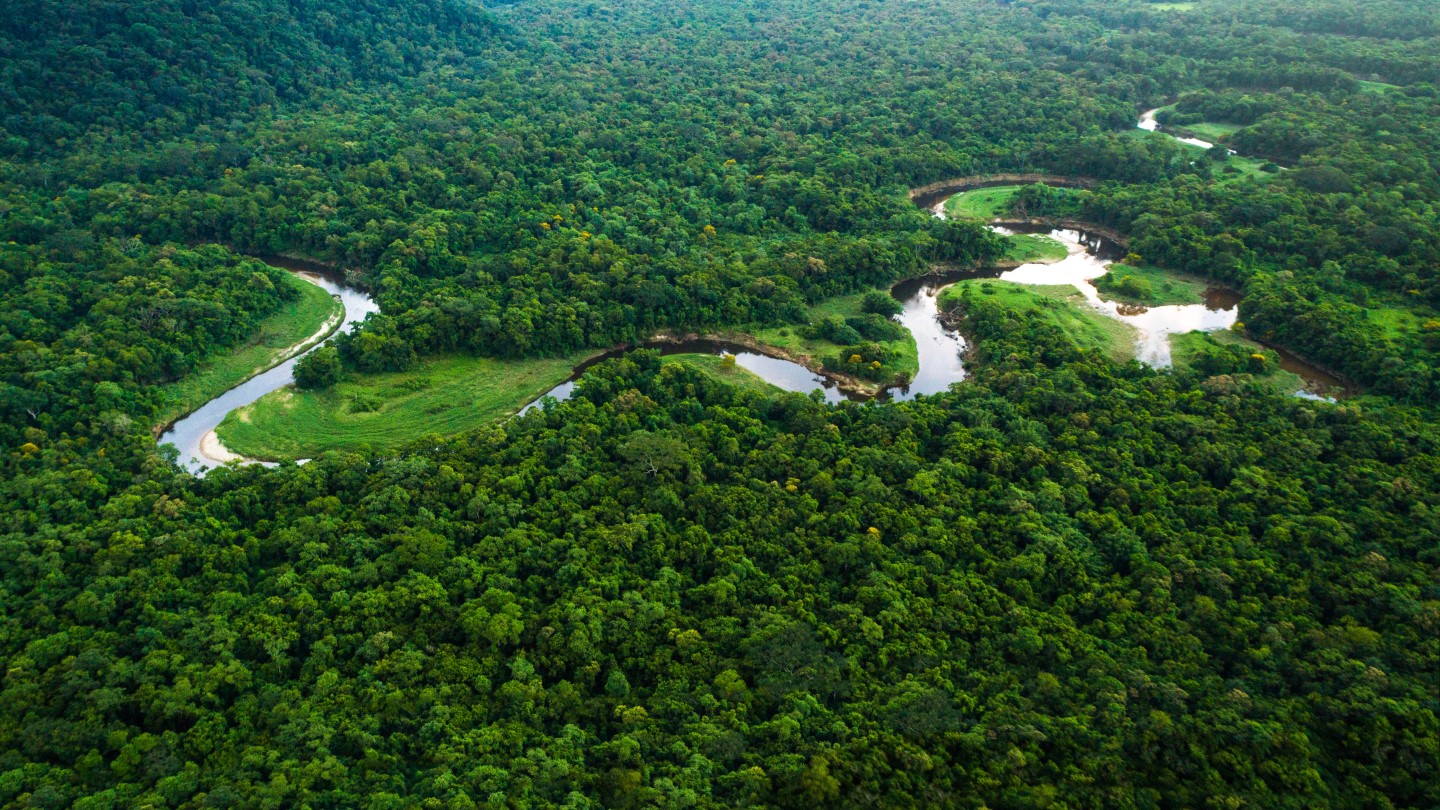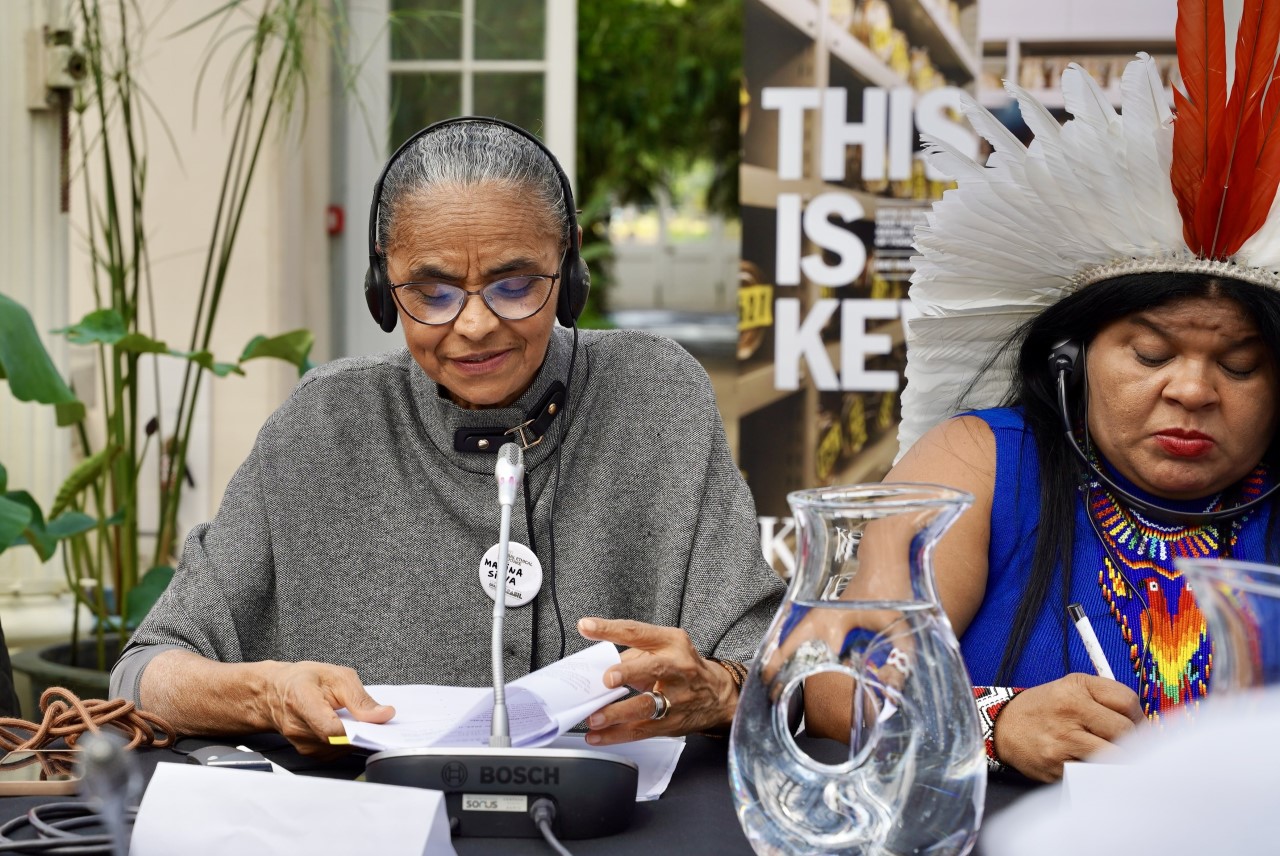In London, countries express support for the Tropical Forests Forever Fund
Representatives from 11 countries, the European Union, and civil society met with Brazilian ministers Marina Silva and Sonia Guajajara, as well as institutions and civil society organizations, to discuss the financial mechanism intended to be delivered at COP30

During London Climate Action Week, both donor and tropical-forest countries expressed support for the Tropical Forests Forever Fund (TFFF) — an investment vehicle combining public and private capital to reward countries that maintain and expand standing forest cover. The initiative was proposed by the Brazilian government during COP28 in Dubai (2023), and full deployment is planned for COP30, to be held in Belém, Pará, this November. It is also a financing priority for the COP30 Presidency.
At the Royal Botanic Gardens, Kew, ministers and representatives from 11 countries — the U.K., Colombia, Ghana, Malaysia, Norway, Indonesia, Germany, France, Guyana, the U.A.E., and Peru — along with the European Union and the World Bank, met with Brasil’s Minister of Environment and Climate Change Marina Silva, Minister of Indigenous Peoples Sônia Guajajara, and COP30 President Ambassador André Corrêa do Lago. The group discussed each country’s commitments to establishing the TFFF, the technical parameters under discussion, and the fund’s expected impact on protecting tropical and subtropical rainforests.
Following a private ministerial meeting, the group was joined by institutions and organizations, including the Global Alliance for Territorial Communities (Aliança Global de Comunidades Territoriais/ GATC), which is closely involved in the TFFF’s design, and private-sector representatives to discuss the fund’s broader potential.
“We are here because we share a concern for the forests,” Ms. Silva said. “They are at risk—from criminal, illegal deforestation to lack of alternatives for often impoverished people. We must have a basket of investment options for payments tied to forest protection. That’s why the TFFF is an innovative mechanism we are adding to that basket.”
““This is not Brasil’s proposal alone, but one from several developing nations, with support from the U.K., Norway, Germany, and the World Bank. It’s a mutirão (collective effort)”
— MARINA SILVA, Brasil’s Minister of Environment and Climate Change

Minister of Indigenous Peoples Sônia Guajajara added that the TFFF includes a provision to allocate at least 20% of payments to Indigenous Peoples and traditional communities—an innovation at this scale.
“We will continue to promote joint country engagement in building the TFFF. And work together to ensure Indigenous peoples get a minimum of 20% of the funds, since it is already known that only 1% of all climate funds reach Indigenous territories. So, the TFFF is an innovative and structural mechanism,” the minister affirmed.
COP30 President Ambassador André Corrêa do Lago emphasized the TFFF’s significance in light of the climate emergency, stating: “The TFFF is the right answer for forest conservation.”
On Monday, June 23, a first round of technical discussions involving CEOs and directors from major banks and financial operators took place, focusing on the proposed financial model and its implementation.
Tropical Forests Forever Fund (TFFF)
The TFFF was proposed by Brasil at COP28 in Dubai as an innovative mechanism to provide large-scale, predictable, performance-based payments to tropical forest countries, aimed at maintaining and increasing forest cover—offering positive fiscal incentives.
Its funding model blends public investment with private-market capital, targeting approximately USD 4 billion annually, to be distributed to tropical-forest countries. Payments are calibrated based on the area of standing tropical and subtropical rainforest each country conserves—verified by satellite data below a defined deforestation threshold, with deductions for each hectare degraded or deforested.
This amount represents three to four times the discretionary budgets of environmental ministries in major forest countries—and tens or hundreds of times more than current voluntary carbon-market funding. In other words, the TFFF could transform national forest conservation policy.
The TFFF is different from traditional models in several important ways. Rather than operating as a grant-based mechanism, it acts as a revenue-generating investment fund. Rather than funding projects, it pays for results. It rewards standing forests rather than compensating for avoided deforestation. It maintains close dialogue with indigenous populations, traditional peoples, and communities, who play a direct role in protecting forests. The mechanism proposes allocating at least 20% of national payments to these populations.
Tropical forests regulate the global climate, host irreplaceable biodiversity, supply freshwater, and support the livelihoods of billions. Humanity’s survival depends on them. The TFFF offers a transformative opportunity to significantly expand financial support to tropical-forest nations.
English Version: Trad. Bárbara Menezes
Proofreading by Enrique Villamil
